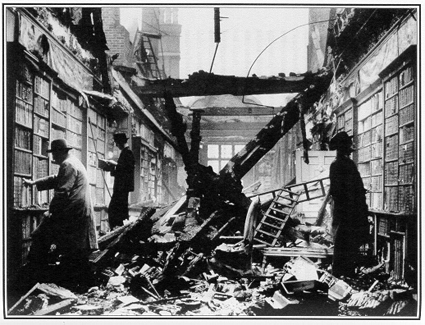
The last couple weeks in the political season anything said on behalf of a candidate is artful lie; anything about the opposition is out-and-out lie. The crude lesson of Modernism is that we are, one and all, unreliable narrators slouching toward the polls bearing a fragmented, mythologized tale. It is a commonplace that hagiography, of politician or saint, is the telling anecdote burnished, brightened and mythologized. But these days even formal academic history is a jumble of preconceived ideas and abstract principles, pleading a cause, no matter how neutral the tone. Revisionist history responds by discovering a different cause or an opposite effect.
Has skepticism, the core principle of knowledge and education, led to the debasement of politics, or has the pervasiveness of politics geared us to accept the lie as the lowest common denominator of public discourse? No matter. The problem, I think, is that we continue to view discourse as some sort of continuum running from hard fact to fiction. We’d be better off if we acknowledged that it’s all fiction, and that we live within a series of intersecting novels. We ought to read Free Market Economy and War on Terror the same way we read Pride and Prejudice, The Great Gatsby, or War and Peace. Fiction, we believe, bears some element of the truth in the artful arrangement of its lies. What’s behind the words or between the lines? Is it something the writer’s hidden there? Or something that can’t be found out by either the writer or the reader? If it’s fiction, at least, we know we’re responsible for digging truth out. We never take fiction at face value. Well, almost never.
Or perhaps this is simply a rationalization for why, at the age of sixty, I read very little but fiction. In fact, it’s a novel that sparked my recent bitter reflections on American politics.

A.S. Byatt’s The Biographer’s Tale is narrated by Phineas G. Nanson, a graduate student drawn to scholarship, endless reading, and life in the library “with its catalogue and its books full of bibliographies full of books full of bibliographies.†Disenchanted with postmodern literary theory, he abandons formal education, proposing to write a book about a biographer, Scholes Destry-Scholes, who has written a monumental study of another figure, Elmer Boles, one of those nineteenth century larger-than-life polymath-giants: scientist, writer, explorer of antique lands. Nanson finds himself “the third in line, organizing my own attention to the attention of a man intent on discovering the whole truth about yet a third man.†All three are fictional, of course, characters in Byatt’s imagination.
Nanson is distracted from his research when he uncovers that Destry-Scholes has left a working file with three incomplete profiles of “real†historic figures: the taxonomist Carl Linnaeus, the Norwegian dramatist Henrik Ibsen, and the more obscure Francis Galton, grandson of Erasmus Darwin and cousin of Charles Darwin. Galton’s contribution to science was the idea of eugenics, the purpose of which was to control human evolution for the good of humankind – an idea which had its greatest flowering among the Nazis in Germany in the 1930s. Byatt appends to The Biographer’s Tale a bibliography of the real life biographers she consulted for information about Linnaeus, Ibsen and Galton.
A nice touch, and a gently misleading one, for Byatt’s underlying premise is that history inevitably fades to fiction. Historians order “facts,†fill in blanks, hypothesize cause and effect. Historians make errors of fact and judgment about their subjects, even as they detect errors made by the subject. For example, Linnaeus touchingly and sweetly thought that swallows spent winters in water under the ice of deep lakes.
Byatt wonders how a dramatist can make a character “ ’real’, whatever that is, and yet leave that ‘reality’ sketched and incomplete, to be fleshed out, to be wormed into, to bulge and sag around the unimagined, unaccommodating perhaps, body, voice – and history, and soul, and human limitations – of an actor? And not even one, definitive, magisterial actor, but a succession of these too fleshy ghosts each filling out different pouches and pockets? How could he collaborate, in his work of imagination, with these unknown helpers or opponents?†Is history very different? It’s a parlor game. As the story makes its way round the circle, it changes. A novelist’s game; an academic’s game, too.
Why do we read? And why do we prefer either history or fiction? (And, I might add, why do we vote?) Byatt suggests that the difference is beside the point. The “primeval reader†— of history or fiction — does not want a book to mirror the world or the self. Instead the reader looks “for an escape route, for an expanding horizon, for receding starscapes, for unimaginable monstrosities and incomprehensible (strictly) beauties. Also for meaning, for making sense of things, always with the proviso that complete sense cannot be made because of the restrictions of small things like death, and the configuration of the folds of our electrically charged, insensible grey matter.â€
Are Moby-Dick and Dead Souls on your ballot?